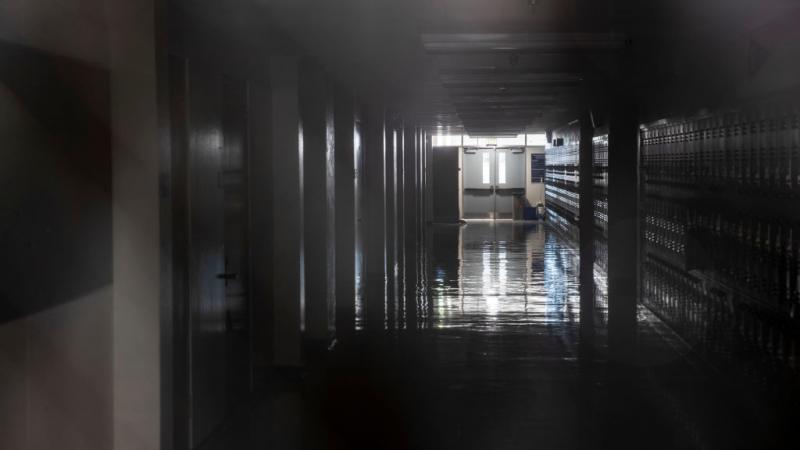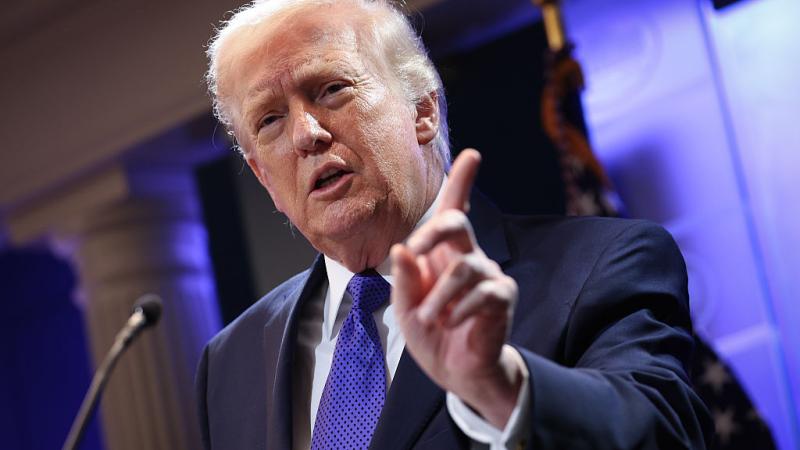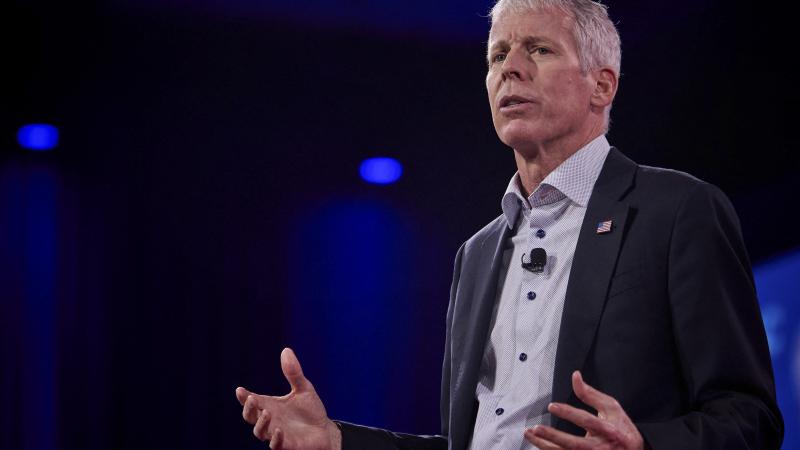Trump wants a two-year blitz, but GOP banking on strong chance of holding Senate in long run
The current 53-47 breakdown of the Senate leaves the party with a degree of room for error, especially given the presence of Vice President JD Vance as a tie-breaking vote. GOP legislators are hoping to keep the ball rolling.
As the Trump administration races to implement as much of its agenda as possible within the first two years while the GOP has majorities in Congress, some Republicans are hitting the campaign trail early and shaping a Senate map favorable to a GOP hold in the long run.
The retirements of Sens. Mitch McConnell, R-Ky. and Gary Peters, D-Mich. have upended races in those states while other Republicans are playing defense in key battleground states. The GOP is eyeing possible pickups across the nation.
The current 53-47 breakdown of the Senate leaves the party with a degree of room for error, especially given the presence of Vice President JD Vance as a tie-breaking vote. Essentially, Democrats must hold every seat and flip a net of four to take the chamber in November 2026.
That is a possibility as Republicans are on defense in 22 states. Of those, however, only Maine, North Carolina, and Ohio are expected to be reasonably competitive. The Democrats, meanwhile, must only defend 12 seats. Incumbents in Georgia and New Hampshire appear vulnerable while retirements in Michigan and Minnesota have paved the way for competitive races.
Kentucky
Republicans are expected to hold McConnell’s seat, which the former GOP leader held for decades, but his replacement appears uncertain. Former state Attorney General Daniel Cameron has already entered the race, though he previously lost a gubernatorial bid to Democrat Andy Beshear and will not necessarily prove the frontrunner.
Rep. Thomas Massie, R-Ky., meanwhile, has floated the possibility of entering the race. The budget hawk has made a name for himself for his willingness to go against the conference, often opposing foreign aid or deficit spending.
North Carolina
Sen. Thom Tillis, R-N.C., faces a tough reelection in the battleground state. Though it has voted with Republicans in every presidential election since 2012, the Tar Heel State often backs Democrats at the state level, as was the case in 2024 when then-Attorney General Josh Stein defeated GOP Lt. Gov. Mark Robinson for the governorship.
Tillis has long faced frustrations from conservatives over his occasional breaks with Trump and could be at risk of a primary challenge. The Democratic field has yet to materialize, though former Gov. Roy Cooper, D-N.C., would likely prove a formidable challenger.
Ohio
JD Vance’s election to the vice presidency left Ohio’s Senate seat open. Gov. Mike DeWine, R-Ohio, ultimately tapped Republican Lt. Gov. Jon Husted to replace him, but he must face election to a full term in 2026. Husted was DeWine’s running mate in the 2022 gubernatorial election, which saw DeWine defeat his Democratic challenger by roughly 25 points.
The Senate races have been much closer, often decided by single digits. Husted’s own electoral history from his secretary of state runs has seen him carry decisive majorities in statewide contests before.
Maine
Sen. Susan Collins, R-Maine, has long proven her ability to win as a pro-choice Republican in the independent-leaning state. Her last election was in 2020, which saw her defeat a Democratic challenger by more than 8%.
Michigan
Possibly the Republicans’ best chance for a pickup may be the retirement of Sen. Gary Peters, D-Mich. This opening has given the party another shot at a seat after former Rep. Mike Rogers, R-Mich., narrowly lost to Rep. Elissa Slotkin, D-Mich., in 2024.
Neither field has materialized, though Rogers could prove a possible frontrunner for the GOP nomination. On the Democratic side, former Transportation Secretary Pete Buttigieg is mulling a run, despite his Hoosier status. Within the state, Michigan Attorney General Dana Nessel is another possible contender.
Georgia
Easily Michigan’s closest competitor for an attainable GOP pickup, the Peach State’s Sen. Jon Ossoff, D-Ga., faces reelection in 2026. The state has typically been a Republican bastion, though it flipped blue in 2020, before backing Trump in 2024. That 2020 cycle also saw Democrats take both Senate seats due to a special election and runoff contest.
Gov. Brian Kemp, R-Ga., enjoys considerable popularity in the state and is nearing the end of his second term, fueling speculation that he could mount a Senate bid. Should he do so, he would likely prove a formidable challenger.
Minnesota
Minnesota has proven reliably Democratic in every presidential election of the past 50 years. The state last backed a Republican in 1972, when it was part of Richard Nixon’s 49-state landslide.
But narrow margins in recent cycles and the retirement of Democratic Sen. Tina Smith has put the seat in play. Neither field has yet to materialize, however, as failed vice presidential candidate running with Kamala Harris, Gov. Tim Walz, D-Minn., is expected to seek reelection to his current post.
New Hampshire
The Granite State represents another possible GOP pickup, with Democrat Sen. Jeanne Shaheen facing reelection. In 2024, the state tapped former GOP Sen. Kelly Ayotte for governor as Chris Sununu declined to run for another term.
The Republican Senate field has few immediately recognizable candidates. Sununu declined to challenge Democratic Sen. Maggie Hassan in 2022, but has not made any announcements about a possible 2026 run.
















